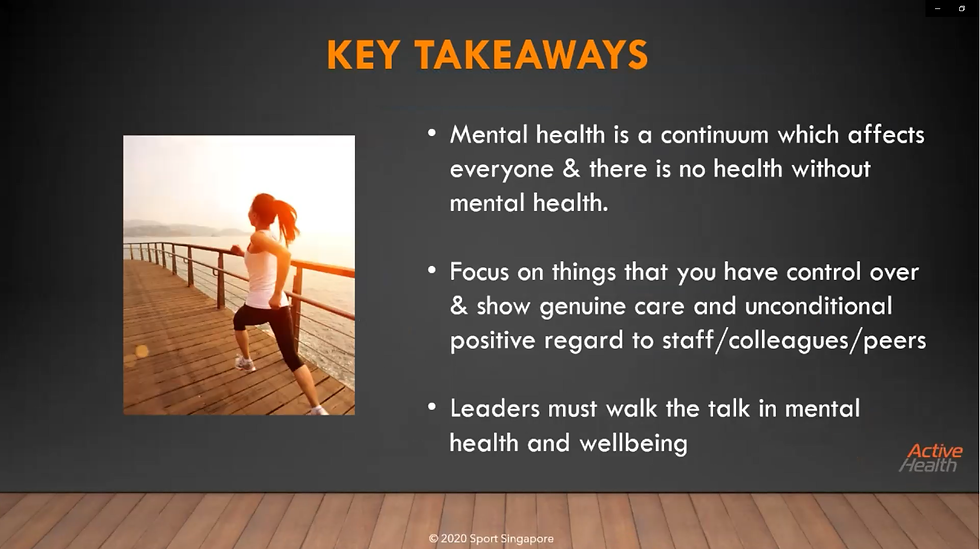Journal 3
- Linda Teo
- Feb 27, 2022
- 3 min read

Leading mental health and emotional intelligence was a disturbing topic. I was reflecting over a week with emotions troubling me. It seems like every corner I turn to there is some channel spreading mental health. In office, EDMs coming through emails highlighting the importance and spreading awareness of mental health. On TV, advertisements on raising mental wellness or illness are aired at frequent intervals. You see documentaries recently featured on mental illness too. I never knew it was such a big problem. I started wondering, are any of my family members or friends are having mental health issues or am I suffering a mental illness myself that I was not aware of. Did I sweep all of the negativity under the carpet or just live with it. If I did, will I explode one day and in what way. I do notice that I have become temperamental with frequent mood swings and gets agitated easily.
Entrepreneurs faced some form of mental health issues some time in their life. This statement shocked me in a way after watching and reading through the pre and post workshop activities. Thinking back on an ex-boss that I shared previously, I started thinking if he was going through such a period which lead him to behave in such irrationality when the business was facing cash flow issues.
The stigmatism and the face value that is linked to confessing or facing the issue is a shocking to me. What has the world, education and upbringing taught us? Why is mental health issues looked upon with so much taboo? How did this all started? As much as I can remember, it all started when I was little, when my mother would say, ”Don’t go too close to that person, he has mental illness, his family abandon him and he had to live on the streets.” Maybe this statement drew relations to abandonment and fear that mental illness is not to be shared or talked about. The general society does not embrace this issue. I guessed it’s the fear of being ostracized and it is not safe that one could not talk about his mental wellbeing.

The three take-ways from the pre-workshop readings and videos are:
1. Awareness. Never knew mental health is an issue and that such high percentages existed in various countries. It is a social problem and a problem that is modern world illness closely related to 4th Industrialization.
2. Entrepreneurs are 50% more likely to have a mental health condition than an ordinary person, and twice as likely to suffer from depression. Not every leader is open to sharing their experience.
3. Stigmatism and voicing out on mental health.

John Flint (CEO of HSBC) said that he had learned that those who survived and recovered possess a resilience and a resourcefulness, and an interest in human nature, an empathy and an EQ which most people do not possess. He regards the survivors as an absolute asset. His words enlighten and inspired me to look at mental wellbeing from a different perspective. People who lived on and well after a mental health crisis is a stronger person or not I am not too sure but I do think that living well and sharing one own’s experience is a stronger gesture to helping those in need.
I think not only the entrepreneurs, founders, or leaders in an organizations needs to take mental wellbeing to check and walk the talk. All managers in any organization should go through and be equipped with mental health first aid to be able to identify, detect and care for team members.






Comments